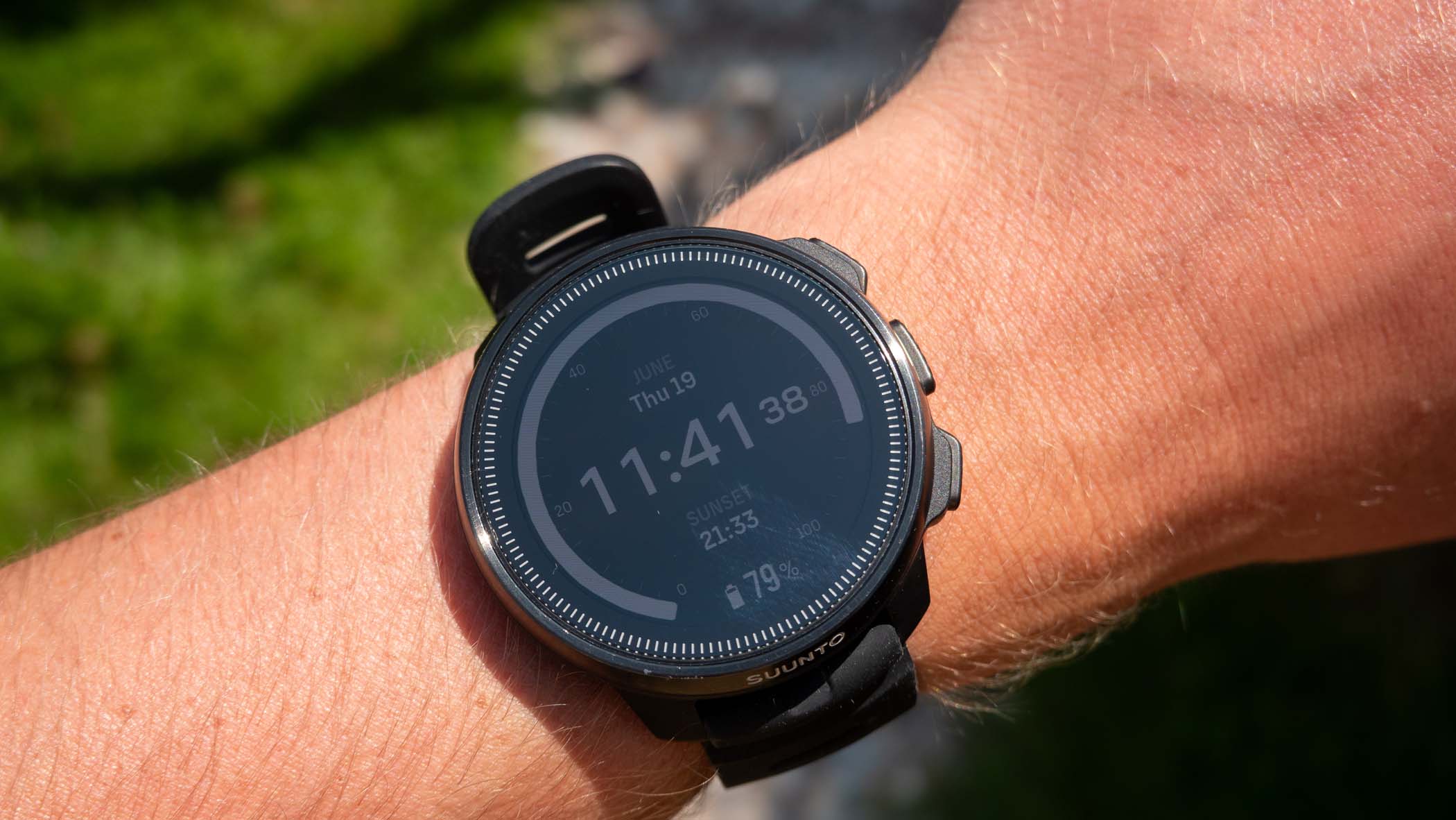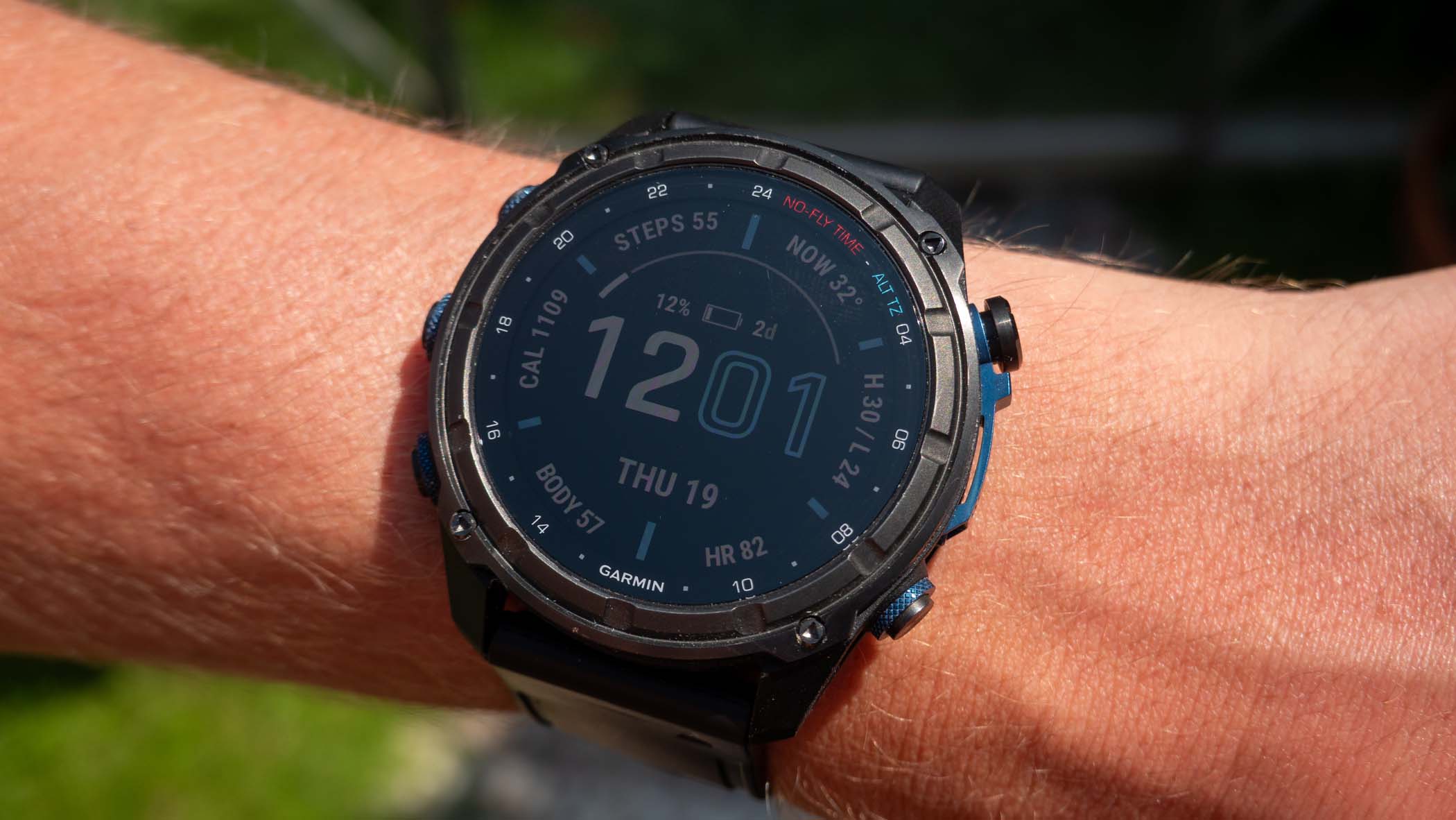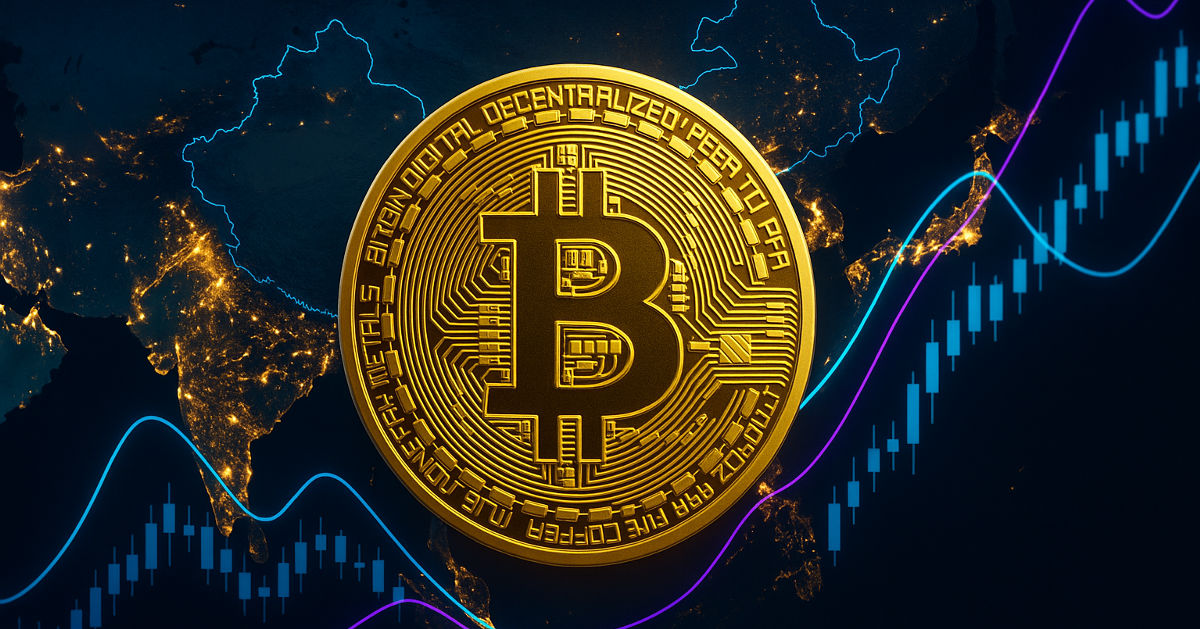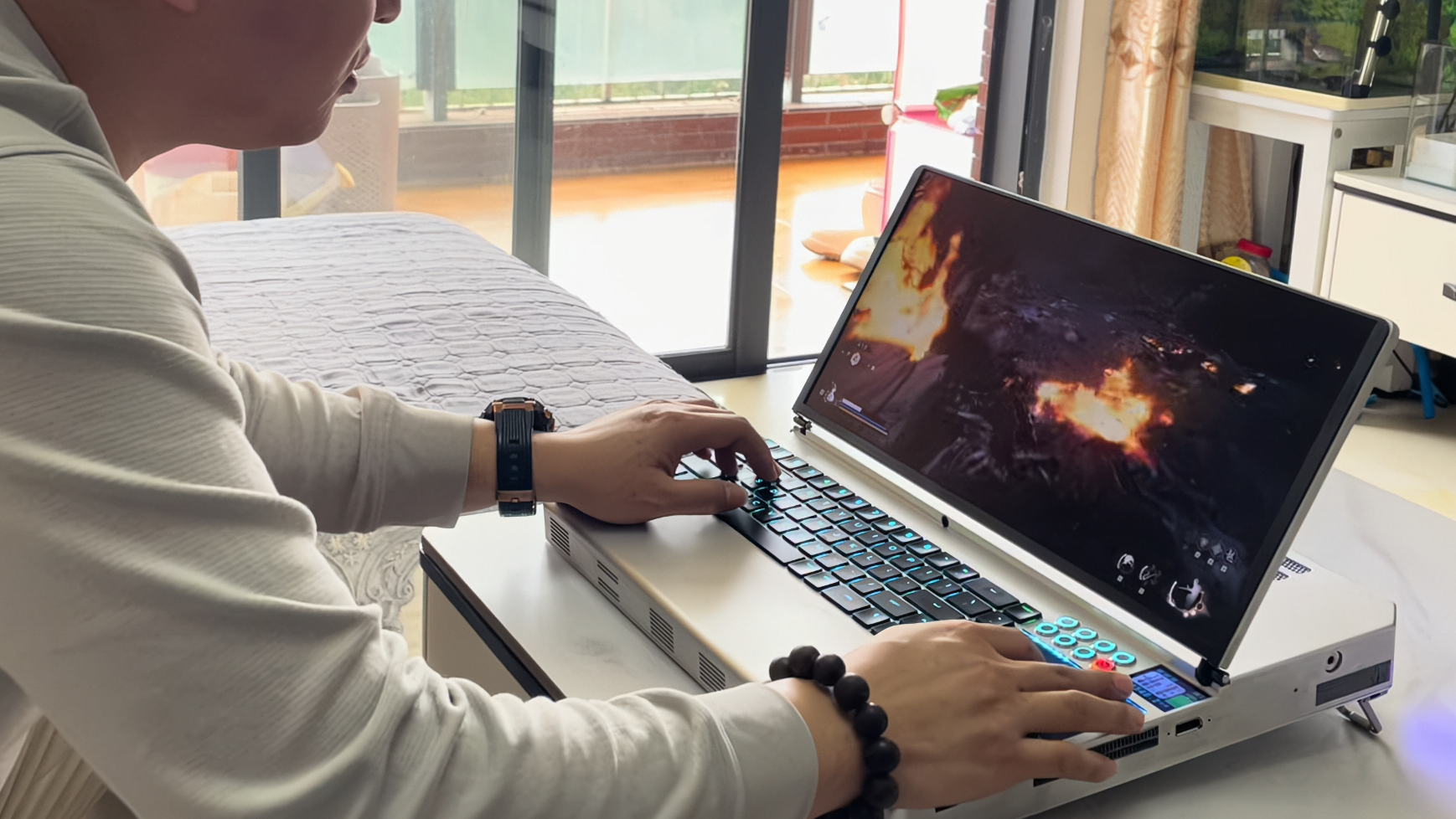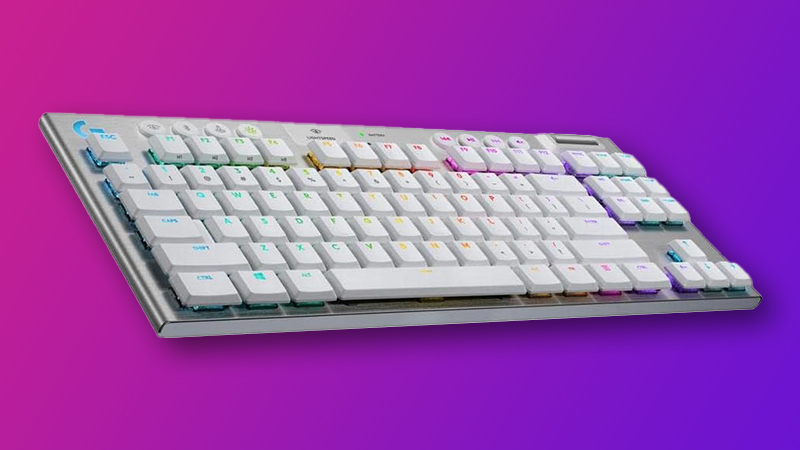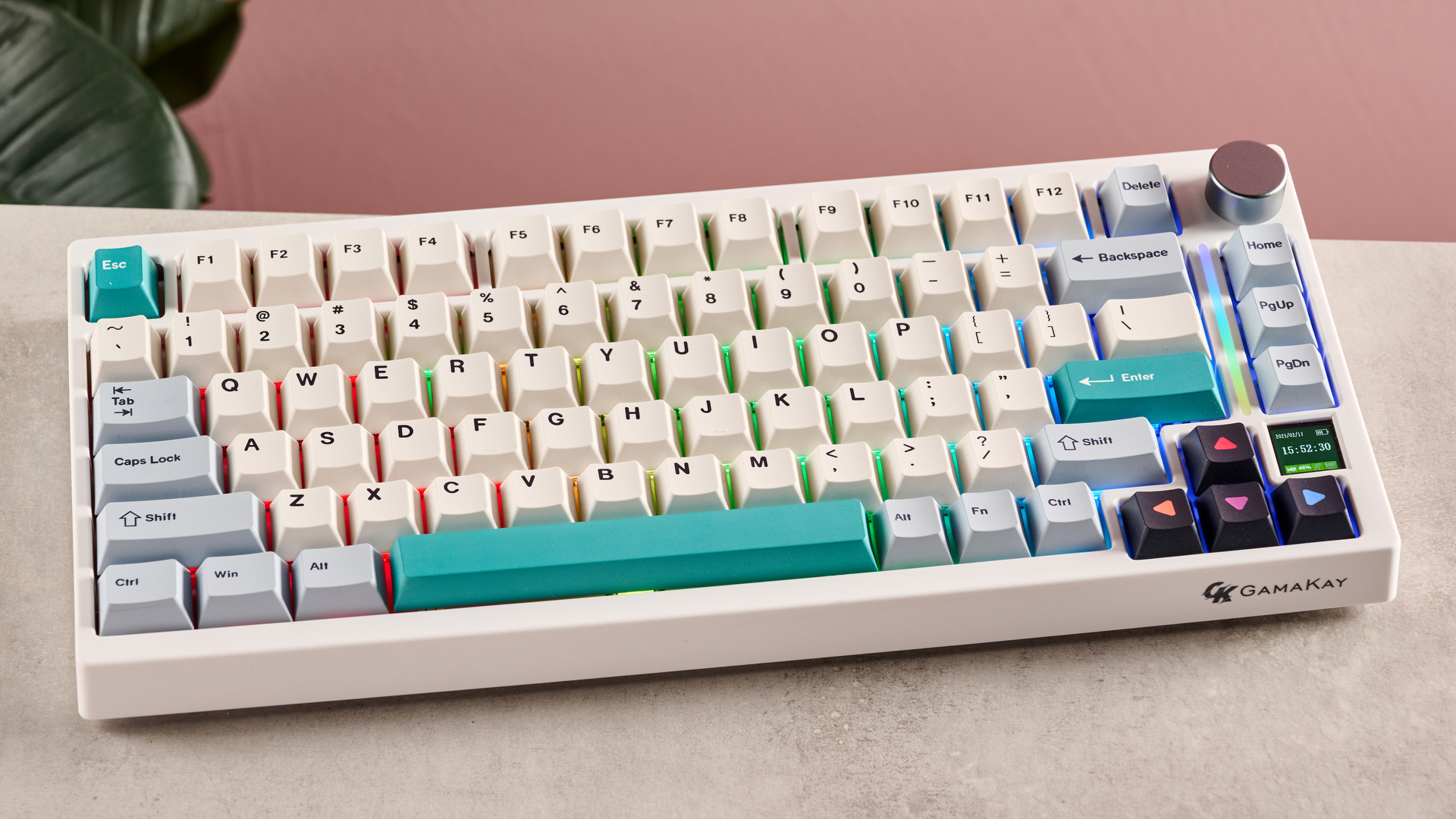Filing Claims U.S. Prosecutors Knew License Wasn’t Required for Samourai Wallet, Prosecuted Them Anyways
Bitcoin Magazine Filing Claims U.S. Prosecutors Knew License Wasn’t Required for Samourai Wallet, Prosecuted Them Anyways The U.S. Treasury Department’s Financial Crime Enforcement Network (“FinCEN”) is now facing serious questions after a new court filing reveals it charged the developers of Samourai Wallet with operating an unlicensed money transmitter—despite being told by the relevant regulator that no license was required. On May 5, 2025, lawyers for Samourai Wallet founders Keonne Rodriguez […] This post Filing Claims U.S. Prosecutors Knew License Wasn’t Required for Samourai Wallet, Prosecuted Them Anyways first appeared on Bitcoin Magazine and is written by Jenna Montgomery.

Bitcoin Magazine

Filing Claims U.S. Prosecutors Knew License Wasn’t Required for Samourai Wallet, Prosecuted Them Anyways
The U.S. Treasury Department’s Financial Crime Enforcement Network (“FinCEN”) is now facing serious questions after a new court filing reveals it charged the developers of Samourai Wallet with operating an unlicensed money transmitter—despite being told by the relevant regulator that no license was required.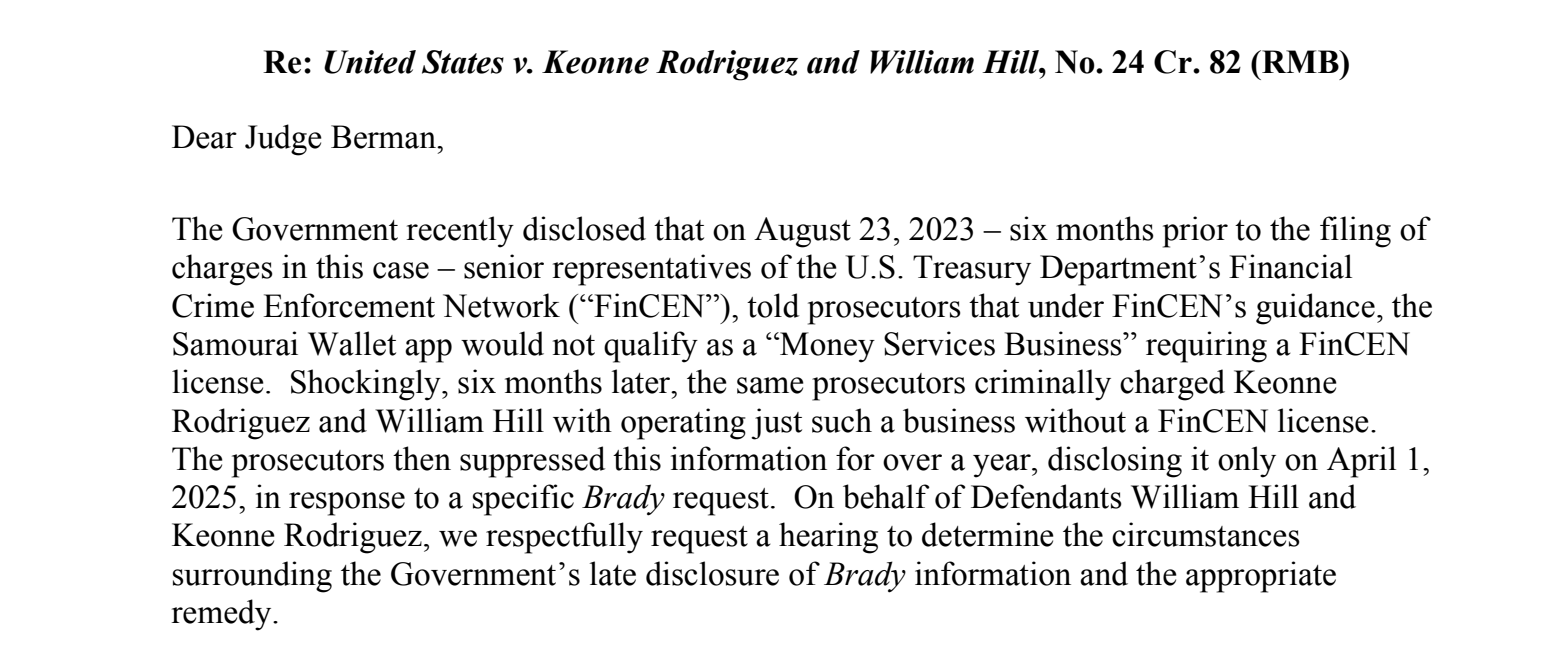
On May 5, 2025, lawyers for Samourai Wallet founders Keonne Rodriguez and William Hill filed a letter to Judge Richard Berman in the Southern District of New York disclosing that FinCEN explicitly told U.S. Department of Justice (DOJ) prosecutors in August 2023 that Samourai Wallet did not qualify as a Money Services Business due to its non-custodial nature. The DOJ moved forward with the indictment anyway, and suppressed that exculpatory evidence for over a year.
“FinCEN’s guidance has generally focused on custody of cryptocurrency… Because Samourai does not take ‘custody’… that would strongly suggest that Samourai is NOT acting as an MSB,” wrote the lead prosecutor in a 2023 internal email just revealed by the defense.
Despite this, Rodriguez and Hill were arrested in April 2024 and accused of laundering over $100 million through Samourai Wallet, which allegedly facilitated $2 billion in unlawful Bitcoin transactions. DOJ press releases at the time painted the service as a hub for dark web money laundering, with U.S. Attorney Damian Williams stating that the defendants “knowingly facilitated the laundering of over $100 million of criminal proceeds.”
But defense attorneys now argue the government’s own communication with FinCEN undercuts the central charge of operating without a license. “The relevant regulator told the prosecutors that Samourai Wallet was not a money transmitter… and the prosecutors went ahead and indicted them anyway,” said the May 5 filing.
The timing of this disclosure is especially inconvenient, as it comes after the DOJ issued new internal guidance—known as “Ending Regulation by Prosecution” (the “Blanche Memo”)—explicitly barring prosecutors from charging non-custodial software tools with unlicensed money transmission. “It’s hard to imagine a clearer example of regulation by prosecution,” the defense added. 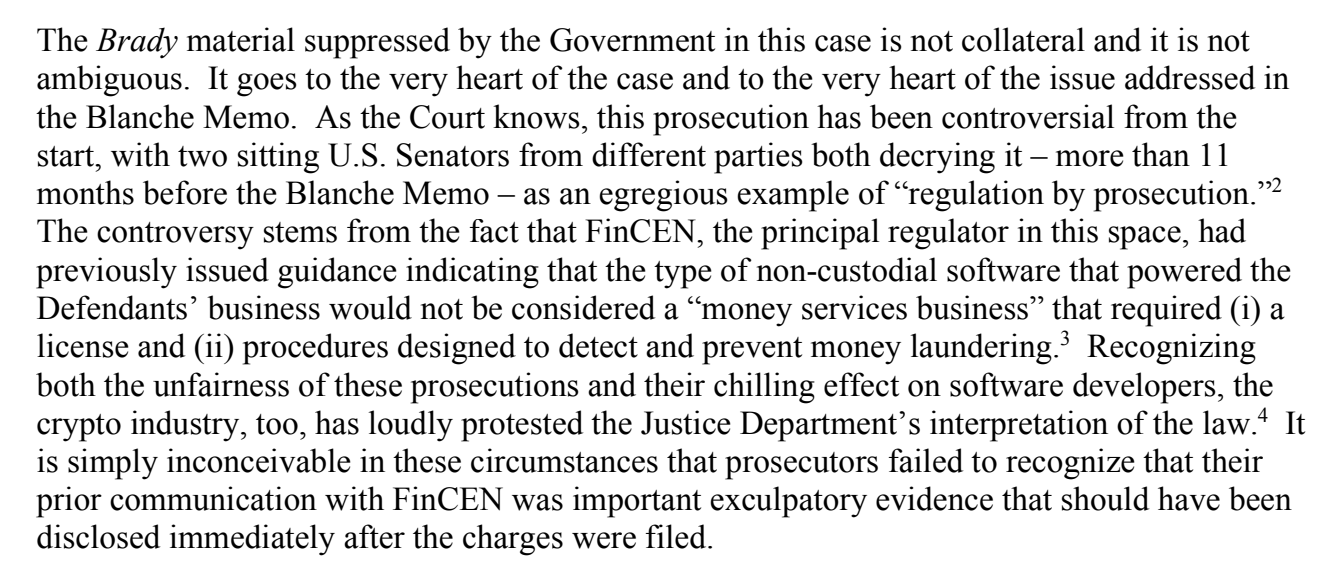
Zack Shapiro of the Bitcoin Policy Institute summed it up in a viral tweet: “Just revealed: FinCEN explicitly told prosecutors Samourai Wallet wasn’t a money transmitter due to its non-custodial design; DOJ prosecuted developers anyway, suppressing exculpatory evidence for a year.”
The developers’ trial is set to begin on November 3, 2025. In the meantime, their attorneys are requesting a hearing to consider the government’s Brady violation and the possibility of dismissal.
To read more about the court filing, see the full PDF below.
This post Filing Claims U.S. Prosecutors Knew License Wasn’t Required for Samourai Wallet, Prosecuted Them Anyways first appeared on Bitcoin Magazine and is written by Jenna Montgomery.








